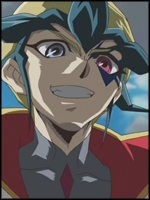Fedi
Admin


Posts : 22
Age : 29
Location : Tunisia
 |  Subject: Ruling Lesson #3 - Inherent and External Special Summons Subject: Ruling Lesson #3 - Inherent and External Special Summons  Mon Jul 22, 2013 5:55 pm Mon Jul 22, 2013 5:55 pm | |
| Welcome, Duel Academy, to a late release of my newest ruling lesson.
This time, I will cover up another peculiar topic, this one being, as the title might suggest, inherent and external Special Summon.
No other topic has been similarly confused over the past few years in the Yu-Gi-Oh! community and as such I want to bring clarity here.
Fancy table, on.
Special Summons - Table of contents
1. Inherent Special Summons
2. External Special Summons
3. Misconceptions...
4. ... and their effects
1. Inherent Special Summons
These are, by far, the most common types of Special Summons.
Nowadays, with PSCT (I have an article on that), these Special Summons are fairly easy to recognize - simply by three to five words in parentheses.
CODE:
(from your hand), (from your graveyard), (from your hand or graveyard) - respectively
All inherent Special Summons have a common trait to them:
You can only inherently Special Summon during your Main Phase 1 or 2.
These summons do, like all other summons, not start a chain.
Their summons can be negated by cards like Solemn Warning or Solemn Judgment.
Common Examples for inherent Special Summons are following cards:
Chaos Sorcerer; Black Luster Soldier - Envoy of the Beginning; Cyber Dragon; Dark Armed Dragon; Judgment Dragon; Machina Fortress; Grapha, Dragon Lord of the Dark World; T.G. Striker; and so on.
Furthermore, all Synchro and Xyz monsters are, by default, inherent Special Summons and, unless stated, Semi-Nomi monsters. Semi-Nomi and Nomi were topic of previous lessons before (actual Classroom Lessons), I will only elaborate those if the readers want me to do a Ruling Lesson on them.
2. External Special Summons
The monsters belonging into this category all have following traits to them:
You can usually summon them whenever their activation timing is met.
All external Special Summons are, this is important!, summons through Card Effects, means cards like Solemn Judgment, Black Horn of Heaven and Thunder King Rai-Oh are NOT able to negate their summons. You can negate the activation of their effects with cards like Divine Wrath, Solemn Warning and such, though.
They are all Spell Speed 1 effects unless the monsters are being summoned through a card like Call of the Haunted, means they won't usually miss their activation timing for cases like Black Rose Dragon.
Also, according to PSCT, all monsters which are able to summon themselves through their own effects (I will mention common examples below) include effects to special summon themselves which are always (!) marked with a semicolon [ ; ] and thus always use the chain.
Common Examples for external Special Summons are following cards:
Mermail Abyssmegalo; High Priestess of Prophecy; Dark Simorgh (the old card text of this card is misleading, it is still an external Summon as it was clarified on its reprint); Tragoedia; Battle Fader; Gorz the Emissary of Darkness; T.G. Warwolf; Kagemucha Knight; and so on.
Furthermore, following common examples include effects which Special Summon monster(s):
Call of the Haunted; Monster Reborn; Scrap Dragon; Kinka Byo; Lightpulsar Dragon (Lightpulsar Dragon itself is an inherent summon!); Reaper of Prophecy; Spellbook of Life; and so on.
All Fusion and Ritual Monsters are, by default, monsters which can be only externally Special Summoned (note following paragraph).
3. Misconceptions...
As noted above, there are misconceptions about this topic, and I seek to rectify some of them.
That I shall do in the following paragraph, though, for now, I'll put up a list of things people may have gotten wrong recently.
Chaining Spirit Reaper to Gorz the Emissary of Darkness' or Tragoedia's effect
Not activating Wind-Up Magician's effect when Wind-Up Shark is Special Summoned
Chaining two T.G. Warwolves to one Special Summon
Using external Summons during the Battle Phase
Using Polymerization to summon Chimeratech Fortress Dragon/Gladiator Beast Gyzarus
More may be edited into the list later on (but probably not).
4. ... and their effects
People have misused cards ever since, but this mainly resulted out of ignorance. Abuse happens, though, so if you ever happen to be unsure about Special Summoning, this topic is what you need.
In order of mentioning in above list:
Spirit Reaper's effect is mandatory and must always trigger before Gorz the Emissary of Darkness and Tragoedia may trigger, despite the fact that all effects are Spell Speed 1. Note that you cannot activate two of the following effects during the Damage Step: Gorz the Emissary of Darkness and Tragoedia.
Wind-Up Shark activates to Special Summon itself and thus, Wind-Up Magician may activate its effect after Wind-Up Shark's effect resolved.
T.G. Warwolf, Wind-Up Shark, Illusory Snatcher and other similar cards are Spell Speed 1 and cannot chain to each other.
Generally, during the Battle Phase, Spell Speed 1 effects cannot be activated unless explicitely stated or if they are trigger effects (like Tragoedia, Battle Fader and so on are). You cannot Special Summon High Priestess of Prophecy during the Battle Phase, for example.
"Contact Fusions", as they are called unofficially, are Fusion monsters which must not be summoned through cards like Polymerization. They are, contrary to all other Fusion monsters, inherent Special Summons and follow all rules given in §1.
That's it for today, pardon any possible spelling or grammar mistakes - if you found some of them, go choke on them, I am allowed to make those - and, moreso, pardon me succumbing to procrastination. Fedi | |
|
